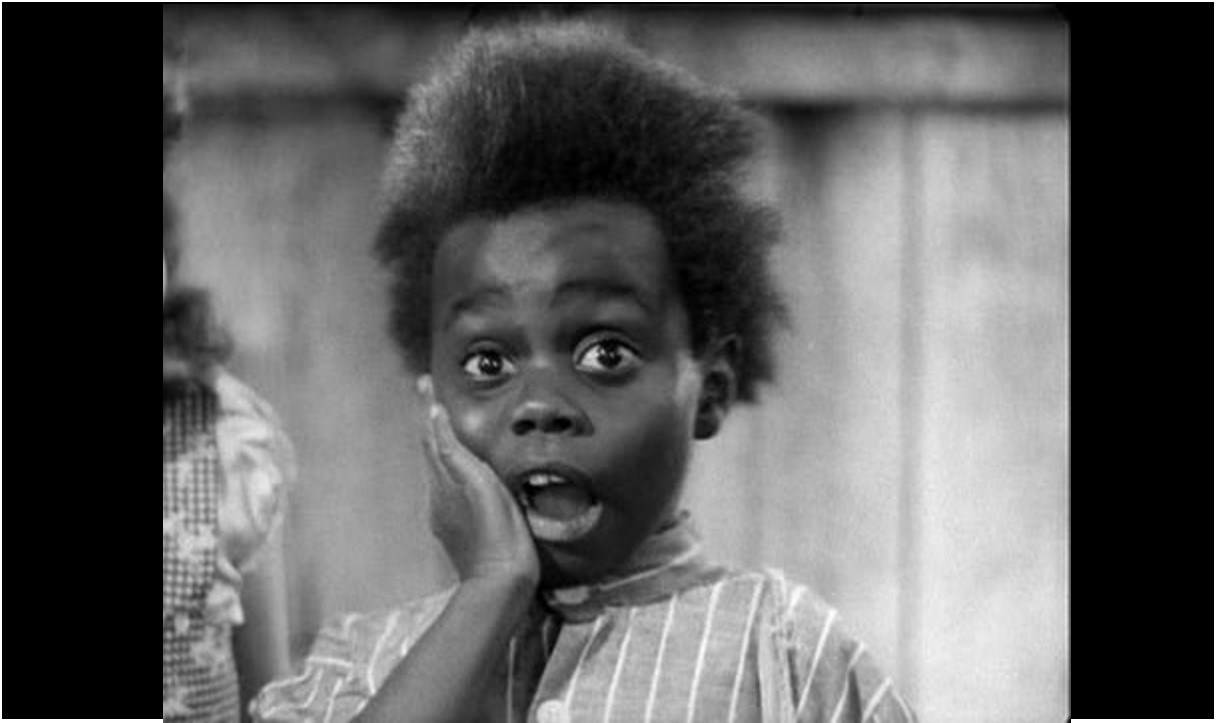On this day in comedy on September 10, 1922 “Our Gang” was released by Pathe Exchange.
The shorts known for their groundbreaking view of racial equality featured children acting as children naturally behave; free of bigotry. Four black characters were featured over the years: Sunshine Sammy, Farina, Stymie and Buckwheat. No filmed anything had done that before then and now its common place. Created by producer, Hal Roach, the adventures of a group of poor kids was hilarious and insightful. He got the idea after auditioning a child actress for a film who was overly made-up and too rehearsed. It struck Roach as unnatural behavior for a child. Then he looked out of his window into a lumberyard where a bunch of neighborhood kids were playing with sticks. The littlest kid had the biggest stick and refused to relinquish it. This gave Roach the dynamics for a comedy series.
“Our Gang” was never stagnant. When the series began they were silent short films. Roach had attempted to produce a series of shorts centering on the adventures of a little black boy, Sunshine Sammy, but theater owners were resistant and only one short was ever shown. So Roach just fused Sunshine Sammy into the “Our Gang” series. The actor who played Sunshine Sammy, Ernie Morrison was under contract to Roach and was actually the first black in Hollywood history to have a long term studio contract. In 1927 Roach took the series from Pathe and gave it to MGM Studios for distribution. “Our Gang” started talking in 1929 soon after the sound revolution in films. In 1938 “Our Gang” was sold to MGM (for roughly $400,000 by today’s money) because Roach could no longer afford to produce them himself. Theaters were cutting back on shorts.
The series went through a few name changes too since its inception. It was also known as The Little Rascals or Hal Roach’s Rascals. In 1955 the shorts were packaged under the name Little Rascals for television syndication. In 1963 Hal Roach Studios sold the rights to Charles King who used the profits from a new TV deal to form King World Productions, one of the largest syndicators in television history.
The “Our Gang” comedies were simply fun entertainment. The kids did not act like little adults. Their dialogue was as a child would speak. No wise cracks. No innuendos. Just plain pre-adolescent verbiage and antics. The boys had a club devoted to hating women, but since they’re boys they would still fall for them. They put on races with homemade soap box derbies. And whenever money got too tight, they put on a show and take in dough from the other poor kids.
One reason was child actors were so natural was because of director Frank McGowan. Even though scripts were written by writers such as Frank Capra, Leo McCarey and Walter Lantz – the kids never saw them. Instead, McGowan would explain the scene to the children before shooting and prompted them to ad-lib. When McGowan left in 1933 (due to a culmination of exhaustion from directing child actors) subsequent directors altered that approach; especially because all the shorts were in sound and things had to make sense.
Over 40 child actors worked on the Our Gang / Little Rascals series. The most famous characters over the years were Sunshine Sammy (Ernie Morrison), Farina (Allen Hoskins), Joe Cobb, Mickey Daniels, Jackie Cooper, Stymie (Matthew Beard), Norman “Chubby” Chaney, Spanky (George McFarland), Alfalfa (Carl Switzer), Darla (Darla Hood), Buckwheat (Billie Thomas), Porky (Eugene lee), Froggy (Billy Laughlin), Butch (Tommy Bond), Waldo (Darwood Kaye) and Mickey (Robert Blake). There were imposters claiming to have been part of the “Our Gang”. One man even appeared on an ABC news magazine show saying he had been Buckwheat, but when the real Spanky stepped forward to refute the claim the real Buckwheat was able to sue ABC for negligent reporting. Everybody wanted to be in the “Our Gang”. Even Mickey Rooney and Shirley Temple tried out, but didn’t make it past the audition phase.
The series went until 1944 after the quality slipped due to MGMs lack of experience filming these types of shorts. Altogether the series produced 220 shorts and one feature length film, “General Spanky” (which was a box office disappointment and no other “Our Gang” features were ever made). A tragedy is that even though the children through the years were popular icons and did commercials and print ad product endorsements in character, they never received any further compensation other than the salary they were paid to shoot the shorts. In most cases that was either $40 per short or $200 for the senior child actors. That was it.
In 1937 “Our Gang” won an Academy Award for Best Short Subject.
By Darryl “D’Militant” Littleton


